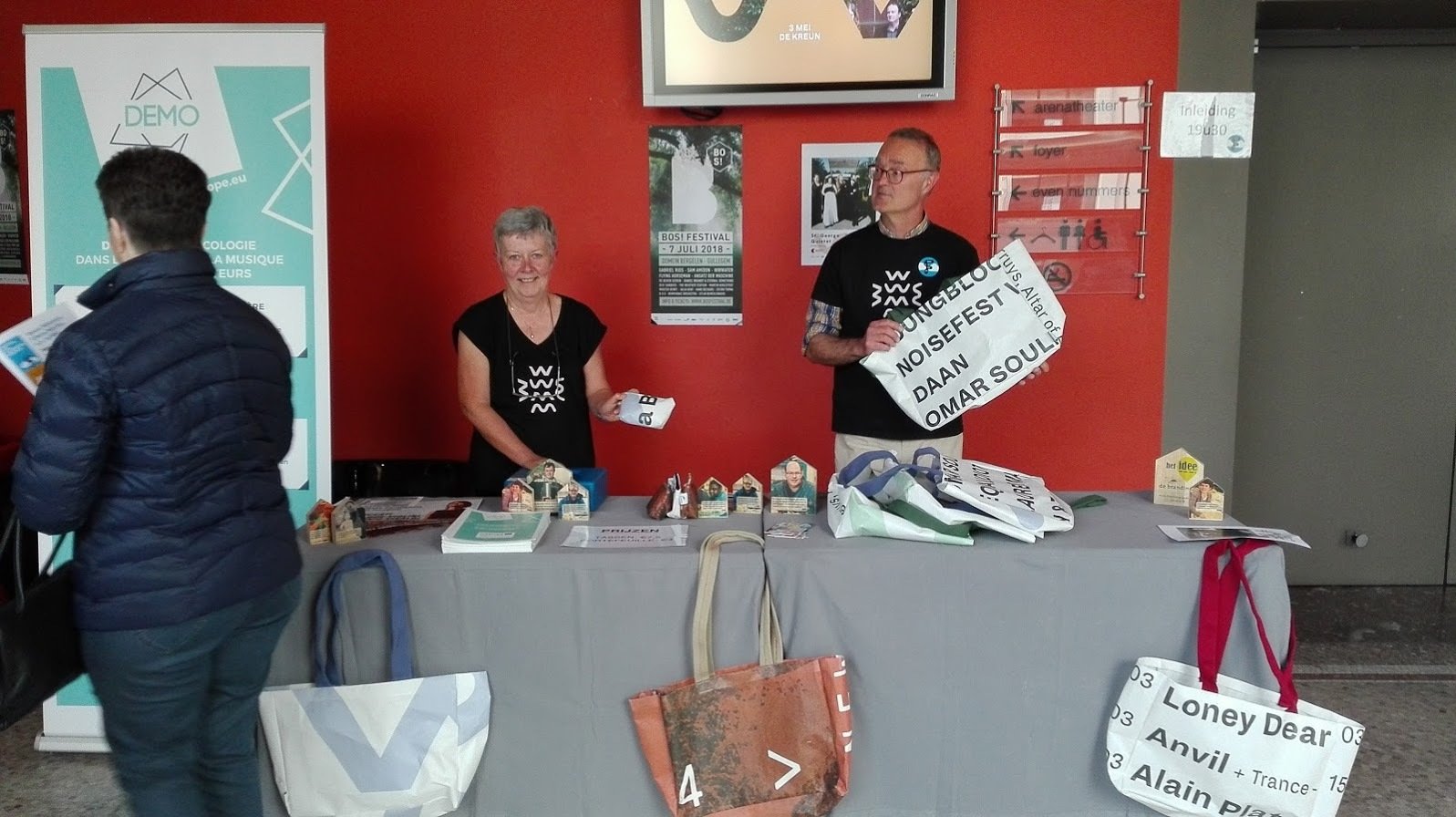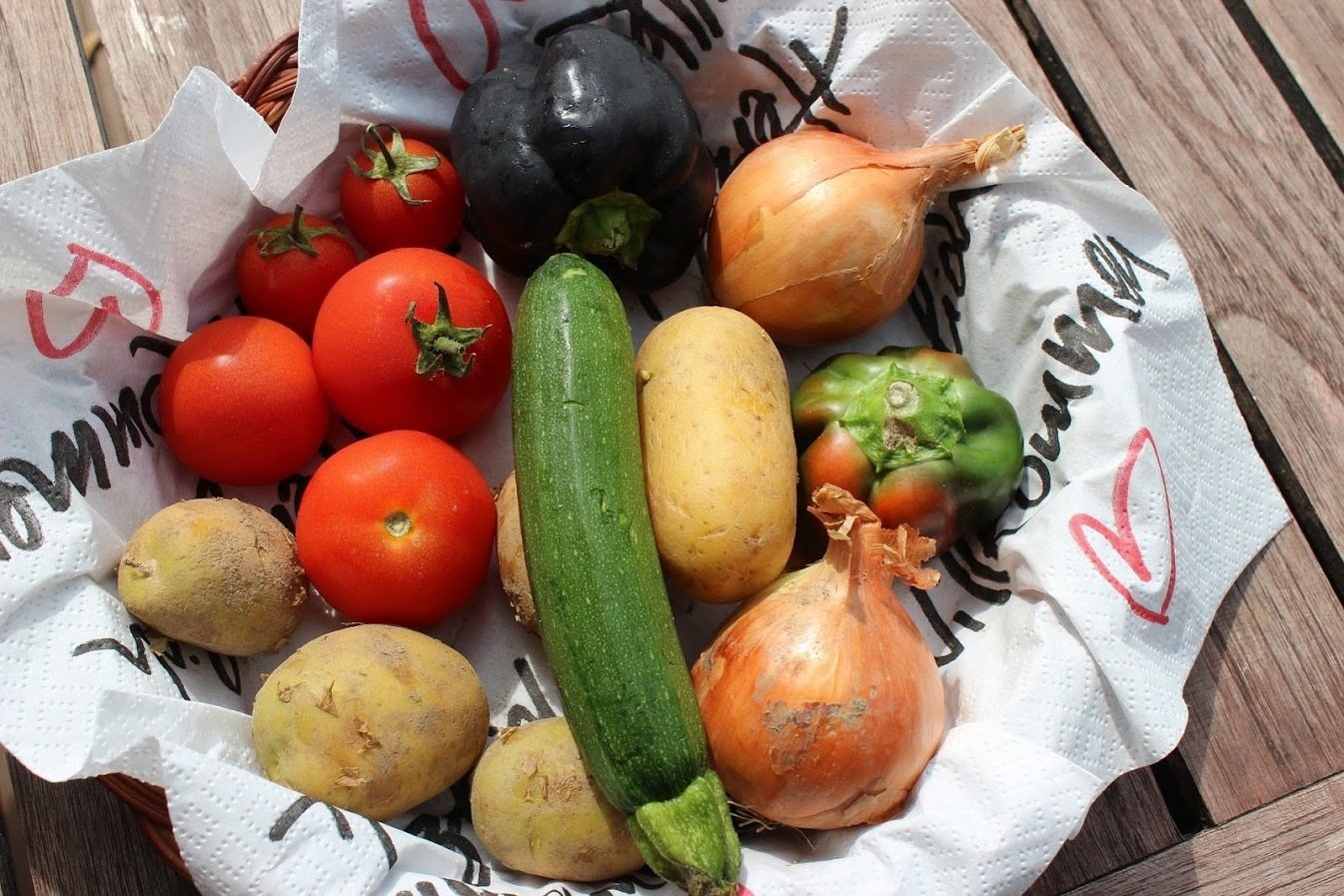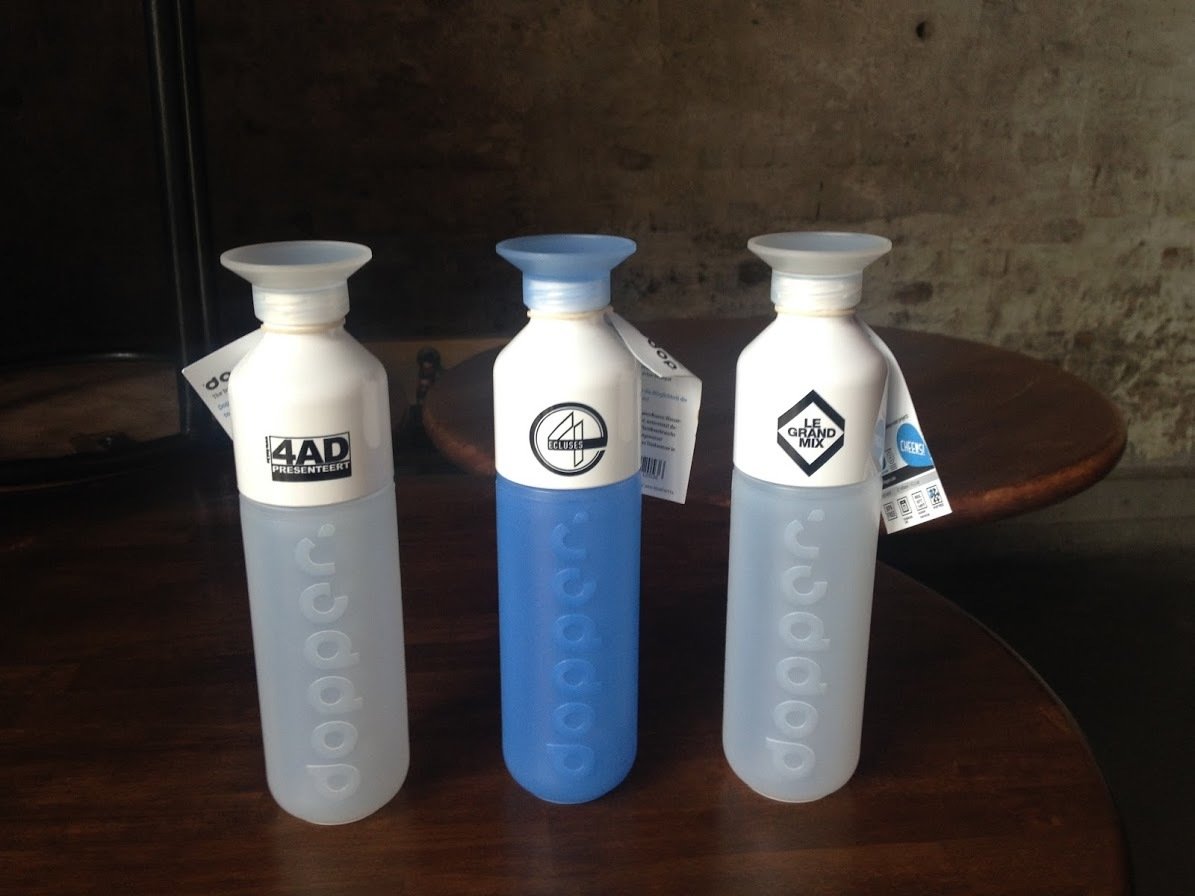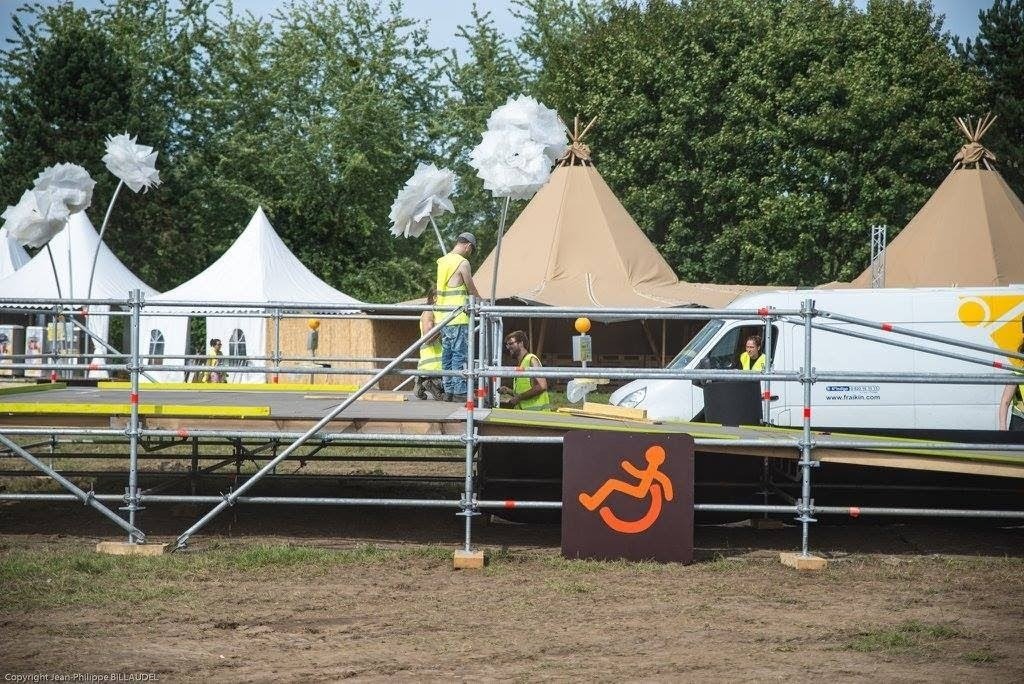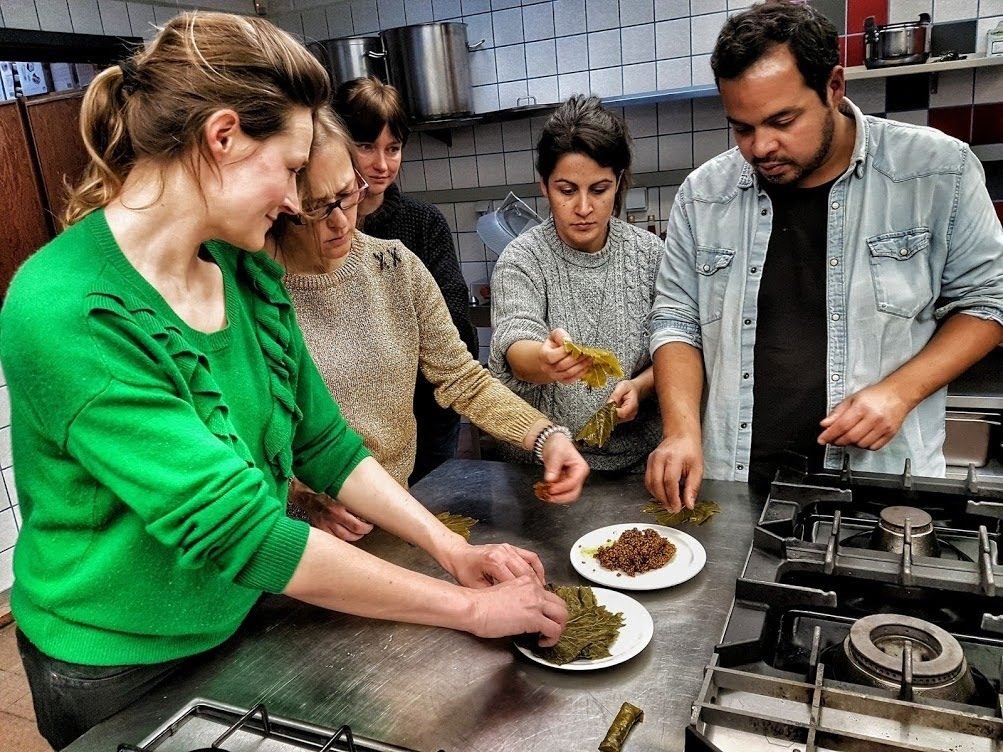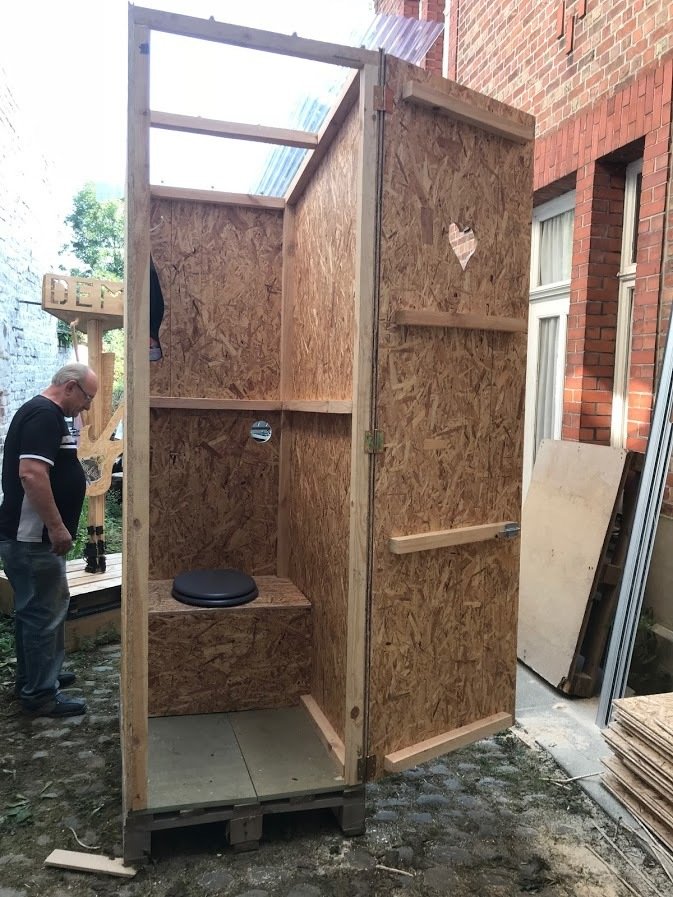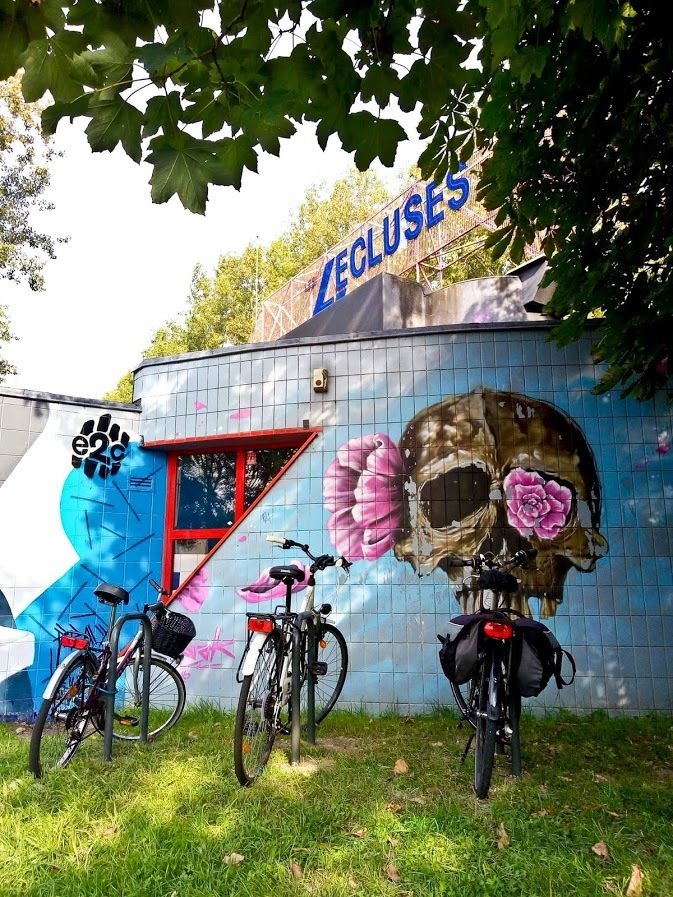DEMO
Durability and Ecology in the Music sector and its Operators

For the years 2014 – 2020, Interreg France – Wallonia – Vlaanderen financed the DEMO project: Durability and Ecology in the Music sector and its Operators.

DEMO’s strategy is built around the 4 pillars of sustainable development:




Environment
Social
Economy
Culture
© Simon Grossi
© Nicolas Debacker
DEMO wants to contribute in a bottom-up manner to intelligent, sustainable and inclusive development in the live music sector.
They commit to protect and valorise the environment and to encourage a sustainable use of resources.
They also commit to valorise and develop in an innovative and sustainable way the transborder heritage through cultural tourism.
The total budget of the DEMO project is of 3,6 million €.
Interreg (through ERDF) covers 1,8 million €.
The other 1,8 million € come from the structures' own budget (subsidies, own funding...) as Interreg cannot cover artistic expenses.
How it all started
The DEMO project is based on a already existing partnership between 2 live music venues from the North of France (Le Grand Mix and Les 4 Écluses) and 2 venues from Belgium (De Kreun and the 4AD Muziekclub)
These four venues have been engaged in European cooperation projects since 2008: the 4x4 project and IC Music. Both projects were related to artistic circulation.
When reflecting on these previous European projects, the live music venues realised they were often mentionning sustainable development and ecology.
So they decided to start DEMO, a transborder project tackling sustainable development in the live music sector.
Then, they applied to the Interreg programme with new collaborators from the live music sector and sustainable development actors in the trans-border region between France and Belgium (Wallonia and Flanders).
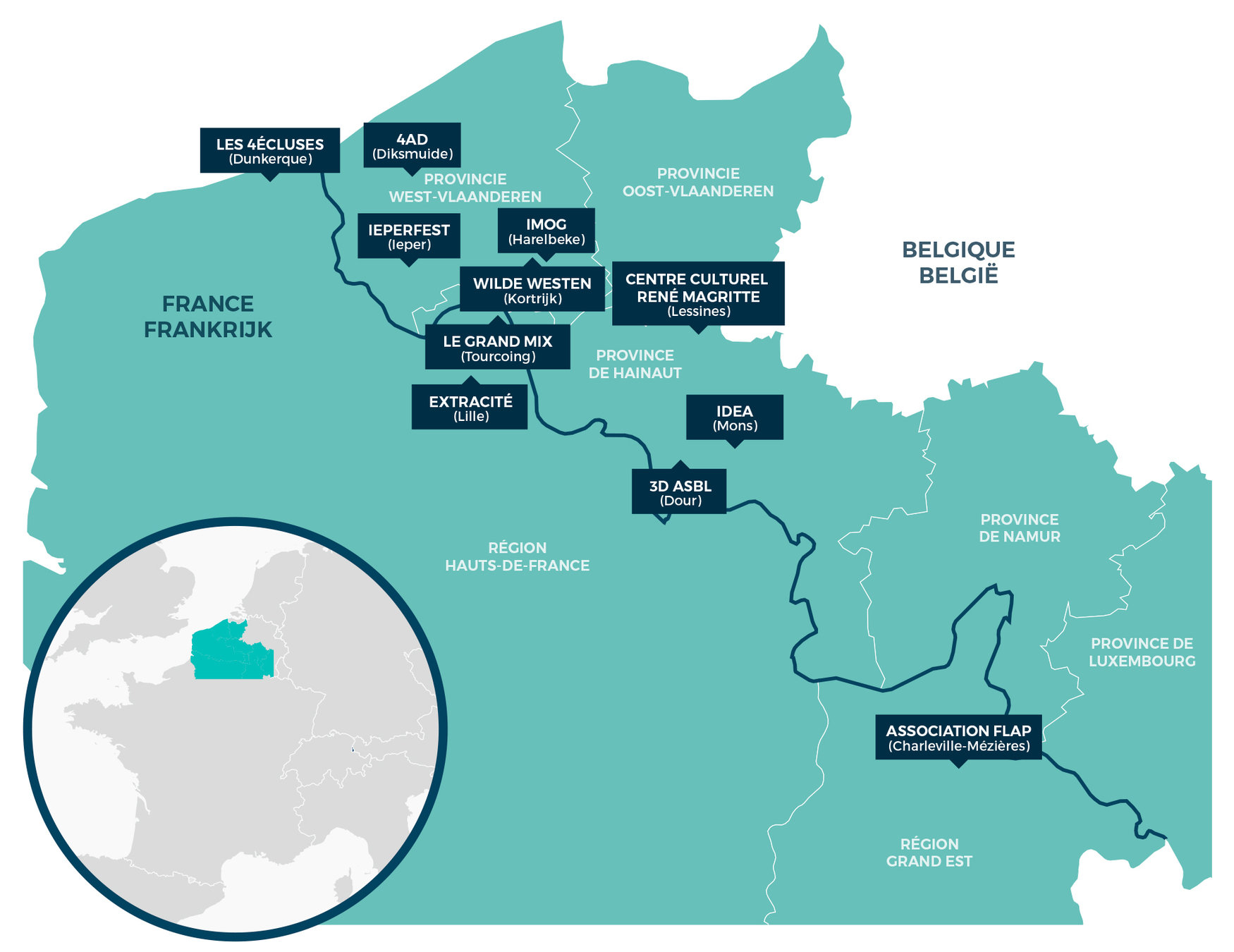
DEMO is composed of 11 partners on a vast geographical zone.
The farthest are 400km apart!
They describe their project as "a unique drive for reflection and experimentation around trans-border actions focusing on social, environmental and economic issues."
The goal is to put in common their means and engineering to conceive and test innovative and creative solutions to valorise the natural and cultural heritage of this region in order to reinforce the territory's atractivity and ecology.

Although Interreg is not a European funding dedicated to culture, the partners from DEMO adressed the cultural sector of live music through ecology, tourism and natural and cultural heritage.
Culture is a transversal sector.
DEMO is a transversal project.
What are DEMO's outputs?
DEMO edited an charter presenting how they work and why.


In French...
... and Dutch!
Environment:
LED lights - electric transportation - waste management and recycling - organic products - solar panels - ecological heating - water...
Examples of actions implemented by DEMO:
click on the images to find out more!
Examples of actions implemented by DEMO:
click on the images to find out more!
Social:
accessibility (people with disability or in a precarious situation) - volunteer training - prevention on risk of hearing damages...
Examples of actions implemented by DEMO:
click on the images to find out more!
Economic:
green purchasing policy - local products and fair trade - cooperation and mutualisation of resources - touristic offer - dry toilets - professional reintegration - skills transfer...
DEMO puts all the initiatives from the project on its website.

Find informative videos, pictures, reports and even veggie recipes for your next catering!

How do 11 partners from 3 different European regions collaborate together?
- physical meetings are crucial: at least once every 2 months!
DEMO: 11 partners, 3 regions, 2 languages, 35 collaborators, 400 000 people impacted by DEMO projects per year.
- the collaborators communicate regularly through a dedicated mailing-list
- a special file sharing platform is open to all collaborators so they can stock and exchange files
- they work by pair on specific ideas, making sure different regions, structures and languages cooperate together
- when meeting, they organise thematic workshops gathering people with similar skills and work interests
The partners: 4 French, 3 Wallonian, 4 Flemmish
3 festivals:
Dour Festival (Belgium) / Le Cabaret Vert Festival (France) / IeperFest (Belgium)
5 cultural organisations:
Le Grand Mix (France) / Les 4 Ecluses (France) / Wilde Western (Belgium) / 4AD Muziekclub (Belgium) / René Magritte Cultural Centre (Belgium)
3 sustainable development organisations
ExtraCité (France) / IDEA (Belgium) / IMOG (Belgium)
Of course, such a collaboration needs a lot of communication and patience. The partners may not have the same point of view on one given subject!
Some partners may get on more than others and continue to cooperate after the DEMO project has ended.
Cooperation is more time-consuming than running a project on one's own, but it is way more enriching!

What will happen next?
Sustainable development in the live music sector is a federating topic.
DEMO hopes their actions and initiatives will go on even when the project is not funded anymore.
Sustainable development is one of European Union's priority.
The initiatives and resource platform that was fueled by DEMO will stay online.
Live music venues and clubs, concert audiences will be inspired by DEMO for a long time!

CONTACT
